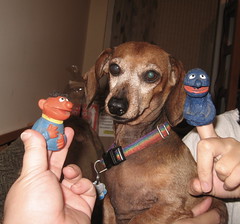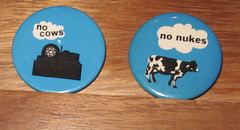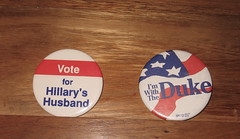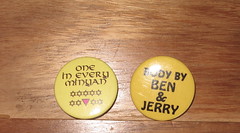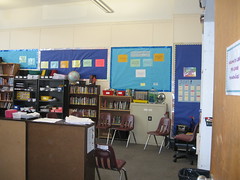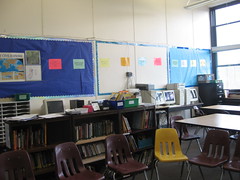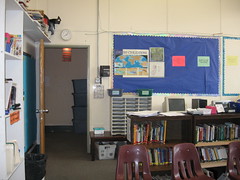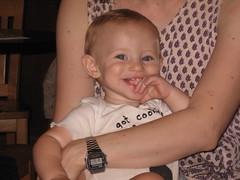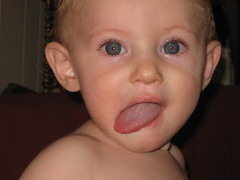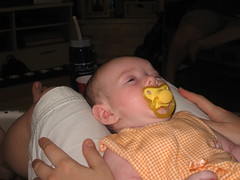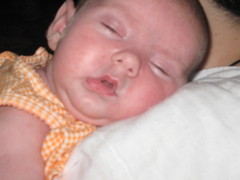Before I begin my ruminations, I must share today's kid quote of the day. It is more of an anecdote. During Community Service period today, we were encouraging small groups of students to come up with community service projects that were appropriate for a variety of communities: their school, town, country, and the world. One group was brainstorming countries that "needed help." One girl suggested that Iran was a "poor country." I said, "Okay, so what do you think they would need help with? What do they need?" She thought a moment, then said, "Weapons?" The others agreed.
Yes, folks. My kids want their community service to be providing weapons to Iran.
-----------------------------
I am an English teacher. (Actually, I am a Humanities teacher, which means I teach both Social Studies and English; but in my heart, I am an English teacher. That dichotomy is a whole other story.) Anyone out there who is an English teacher, or an elementary school teacher, or has been anywhere near a school lately, probably knows about the Workshop Model. Many people have written about the Workshop Model by now, though it is often attributed to Lucy C@alkins/Te*cher's College (though I prefer it as articulated by Nancie Atw*ll). In brief: this model requires that you teach "minilessons" (anything more than 15 minutes of direct instruction is verboten in many schools) and then the children have reading/writing workshop time where they pursue their own interests in said subjects.
At the school where I work now this actually works reasonably well (how this worked in classes of 30+ kids who had never been allowed up from their desks before, and who generally had trouble getting through a class period without drawing blood, is the subject of perhaps an entirely other blog).
A feature of this approach is the highly confessional teacher. I suppose it's not required, but all of the examples I have seen (both in books and from staff developers) involve a lot of showing your own process as a reader and writer, which involves sharing a lot of information about your life. In general, this doesn't bother me. In fact, in many ways I am an ideal person to model "reading" and "writing" habits because I am passionate about both enterprises. I really do keep a writing journal, my 28th in a long line of battered composition books dating back to the 6th grade. I really do read voraciously, and write compulsively.
But...and I imagine some of you know where I'm going here...it's hard to be completely honest. The women (and it is almost invariably women) who have served as my models (in books and in person) talk frequently about their families. They put pictures of their kids on their decorated journals (because your journal has to be decorated, you know; I think this is a fun exercise for kids, but I'll be damned if I'm doing anything to mine beyond my traditional coloring-in of the white parts of the marble). I regularly have to cut off whole sections of my interests and personality, both as a lesbian, and as a person with a family of my own. (Let's just say I didn't put "Queer Literature" on my list of Reading Territories.)
However, I have long suspected that this would have to change when we had a baby. I work at a small school where a fair number of kids have parents on staff. I'm entirely out to staff (and therefore, to some kids). Last week, when I introduced the kids to Reading Workshop, I went ahead and listed "parenting books" as one of the genres I read. I explained that I was going to be having a baby in a few months, and that my partner was pregnant. I think there may be a few kids who didn't quite get it, but most of them both understood, and were excited (well, excited was the girls; I hate to be stereotypical, but it really is the adolescent girls -- I teach 7th grade -- who get excited about babies).
It hasn't come up again. I don't have a pregnant belly to remind them. But they're a sweet bunch, and I am both relieved and excited to be moving forward, coming out again and again and again.
